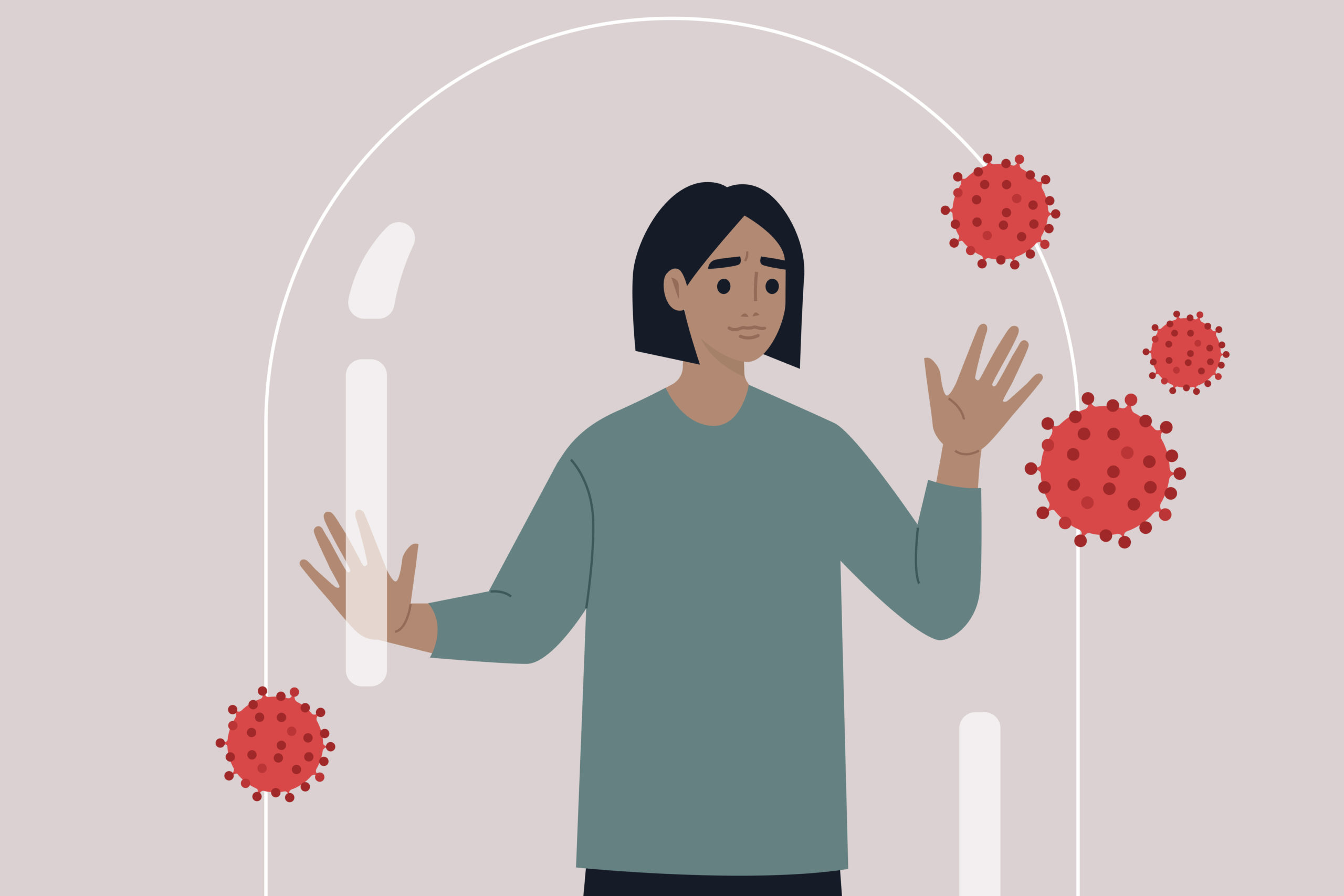My survivor story and how this serious condition affected me.
Maybe it’s my northern roots, but I like to battle on even when I feel under the weather. A lifelong believer, never slowing down and always getting the adrenalin kick from the gym however I feel. I even had meetings in the maternity ward when I went into labour a month early with my daughter, compelled by my misguided workaholic tendencies.
This compulsive nature to be hyperactive and juggle everything as a single parent and entrepreneur have been a recurring theme brought up by my family and friends. It came to a head when I was in Atlanta a few years ago hosting a brand workshop, I started to feel exhausted and feverish but there was no way I was going to let the flu-like symptoms stop me. Despite the fever and sweats I dressed up and tried to sound inspiring despite feeling the moisture rising on the back of my neck. On the flight back to the UK I noticed my on my legs had a purplish ting, but like the stereotypical entrepreneur I ignored the signs and headed straight to my next event at Mercedes World when I landed at Heathrow.
That’s when I realised something was seriously wrong.
I looked in the mirror my lips were purple and my whole body felt weak, then the tears came flooding out I felt exhausted and emotional. The lovely receptionist sat me down, called me an ambulance, who soon told me I had acute sepsis. I was immediately put on a drip and given antibiotics.
What is sepsis infection?
Sepsis, also known as blood poisoning, is the reaction to an infection in which the body attacks its own organs and tissues.
Blood poisoning occurs when bacteria causing infection in another part of your body enter your bloodstream. The terms “septicaemia” and “sepsis” are often used interchangeably, though technically they aren’t quite the same.
The presence of bacteria in the blood is referred to as bacteraemia or septicaemia, it’s the infection itself whereas sepsis is the body’s inflammatory reaction.
Sepsis is a life-threatening illness caused by your body’s response to an infection. It is one of the UK’s biggest silent killers, taking 44,000 lives every year and affecting around 260,000 cases a year in England according to the UK Sepsis Trust.
I had no idea what was happening and had never heard of Sepsis, this infection kills more people than bowel, breast and prostate cancer combined every year and can cause long-term complications.
To me it had felt like flu, I was feverish and lethargic, the symptoms of sepsis are notoriously difficult to diagnose, as they are similar to many common signs you often associate with minor infections.
What are the symptoms of Sepsis?
- Slurred speech or confusion
- Extreme shivering or muscle pain
- Passing no urine (in a day)
- Severe breathlessness
- It feels like you’re going to die
- Skin mottled or discoloured
Acting Fast

Dr Ron Daniels, chief executive of the UK Sepsis Trust, says: “An emphasis on timely treatment and diagnosis is crucial if we are to improve outcomes for people with sepsis.”
So when last year I started to feel clammy and run down again I went to the doctors after a couple of days, they took blood tests and sent me home with some antibiotics and a sense of relief. That all changed when the next day they called and said I had dangerously high levels of blood poisoning, sepsis again and I needed to go to the hospital again. The tears flooded out, this time I was scared, as I knew how serious it could be especially as I headed to the hospital alone.
I was treated again
Just like the last time I was treated with antibiotics and IV fluid treatment and sent for a few scans to make sure my organs had not been damaged.
After two scares I am now very cautious and realise that trying to be superwoman and doing too much while not listening to your body can be life-threatening.
Having Sepsis twice means I feel at higher risk and take care to keep my immune system strong, more rest and respond to symptoms early.
I am lucky I have no long-term damage from this ‘silent killer’ that claims the lives of 44,000 people in Britain and leaves another 100,000 with permanent, life-changing injuries, from irreversible damage to internal organs to amputated limbs.
Liz Frood, a 41-year-old mother and Egyptologist at Oxford University, was suddenly struck down with what she thought was a mere tummy bug. For Liz, who survived, the price of late diagnosis was the loss of both her legs, which turned gangrenous and had to be amputated below the knees.
Surviving sepsis twice has put life in perspective, trying to be superwoman can kill you. I now listen more carefully to my body and rest more. This fast-moving condition can attack your body’s immune system very quickly and can be caused by anything from a small cut, a minor infection to the flu.
The good news is that sepsis can be easily treated with a quick dose of antibiotics. The key, as I have learnt, is to listen to the signals early. They are all too often missed, with terrible consequences. It’s important to always listen to your body. Don’t try and be superwoman.

For more information on Sepsis, visit: https://sepsistrust.org





